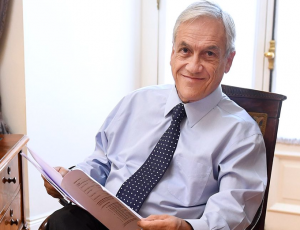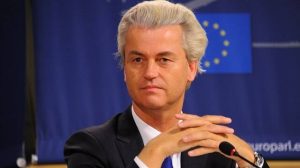Syrian President Bashar al-Assad, who has overseen one of the century’s bloodiest conflicts, has been re-elected for a fourth term, renewing his stranglehold on power.
With his campaign slogan, “Hope through work”, Assad cast himself as the sole architect of a reconstruction phase for the war-ravaged country.
His matter-of-course win in Wednesday’s poll, the second in a decade, is a slap in the face of foreign and domestic opponents.
Assad took 95% of the vote, the parliamentary speaker announced Thursday, amid accusations from Western countries that the election was “neither free nor fair”.
Also Read: In war-hit Syria, this family practises ‘one way of reaching God’
In appearance — whether in person or in the many portraits in the capital Damascus — Assad usually eschews the military garb favoured by former strongmen such as Iraq’s Saddam Hussein or Libya’s Moamer Kadhafi.
Instead, he opts for a sharp-cut business suit and sober tie.
In official meetings, during interviews and even on the frontlines, the cold and enigmatic 55-year-old — an ophthalmologist by training — can almost appear timid, and speaks calmly but firmly.
Even at the height of the war, Assad was unwavering in the belief he would crush a rebellion that he says was waged by “terrorists” seeking his overthrow with assistance from the West and Arab Gulf countries.
One journalist, who met with Assad on several occasions before and after war broke out in 2011, told AFP the president is a “unique and complex figure”.
“Each time I met him he was calm… even during the most difficult moments of the war,” the journalist, who declined to be named, said.
Assad has “the same qualities” as his father Hafez al-Assad, who ruled Syria with an iron fist for nearly three decades until his death in 2000, he said.
“In politics, it’s important to know how to shuffle cards, not just how to arrange them,” the journalist added. “Assad has mastered the shuffling game.”
Assad’s life changed radically when his older brother Bassel, who was being groomed to inherit power from their father, was killed in road accident in 1994.
He quit his studies in ophthalmology and left London where he had met his wife Asma, a British-Syrian and Sunni Muslim who worked for financial services firm JP Morgan.
Back home, he took a course in military studies and was tutored in politics by his father. When the latter died Bashar became president by referendum, running unopposed, then winning a second term in 2007.
Sworn in at the age of 34, Assad was widely seen by Syrians pining for freedoms as a reformer, who could do away with years of repression and introduce economic liberalisation.
In the early days, Assad would be seen driving his own car or having dinner at restaurants with his wife.
He relaxed some of the heavy restrictions that existed under his father.
But his efforts at reforming Syria quickly evaporated as authorities arrested and jailed academics, intellectuals and other members of what was then known as the Damascus Spring movement.
When the Arab Spring reached Syria in March 2011, peaceful demonstrations broke out calling for change.
Assad, who is also commander-in-chief of the armed forces, responded by ordering a brutal crackdown on the protesters and civil war swiftly ensued.
Also Read: French IS widow in Syria camp, veil-free, wants to ‘go home’
Throughout the war, that has killed more than 388,000 people and displaced half the population, Assad’s position has not changed — and he has shown no inclination to step down.
Those who know him say he is a hands-on father to his three children — two boys and a girl.
“He often helps his children with their homework,” said the journalist, who has met him several times.
“He insists on being close to them, without interference from a nanny or other helpers.”
A Syrian researcher in Damascus, who asked to speak anonymously over security concerns, said: “Assad’s personality played an undeniable role in his survival.”
His “persistence and rigour” played an especially important role in helping him “consolidate decision-making powers, and secure the army’s full support”, he added.
Assad also had military backing from staunch allies Iran and Russia, who helped him score a string of military victories, and regain control of nearly two-thirds of the country.
Ahead of the polls, Assad’s election campaign published several pictures of him at work, including archive photos where he is seen visiting a factory, or meeting soldiers on the frontlines.
“Bashar al-Assad, short of his death by natural or unnatural causes, is poised to be the once and future president of Syria,” Nicholas Heras, of the Newlines Institute in Washington, said before the vote.
“He and his allies are doing everything possible to push that fact into the face of his foreign and domestic opponents.”





